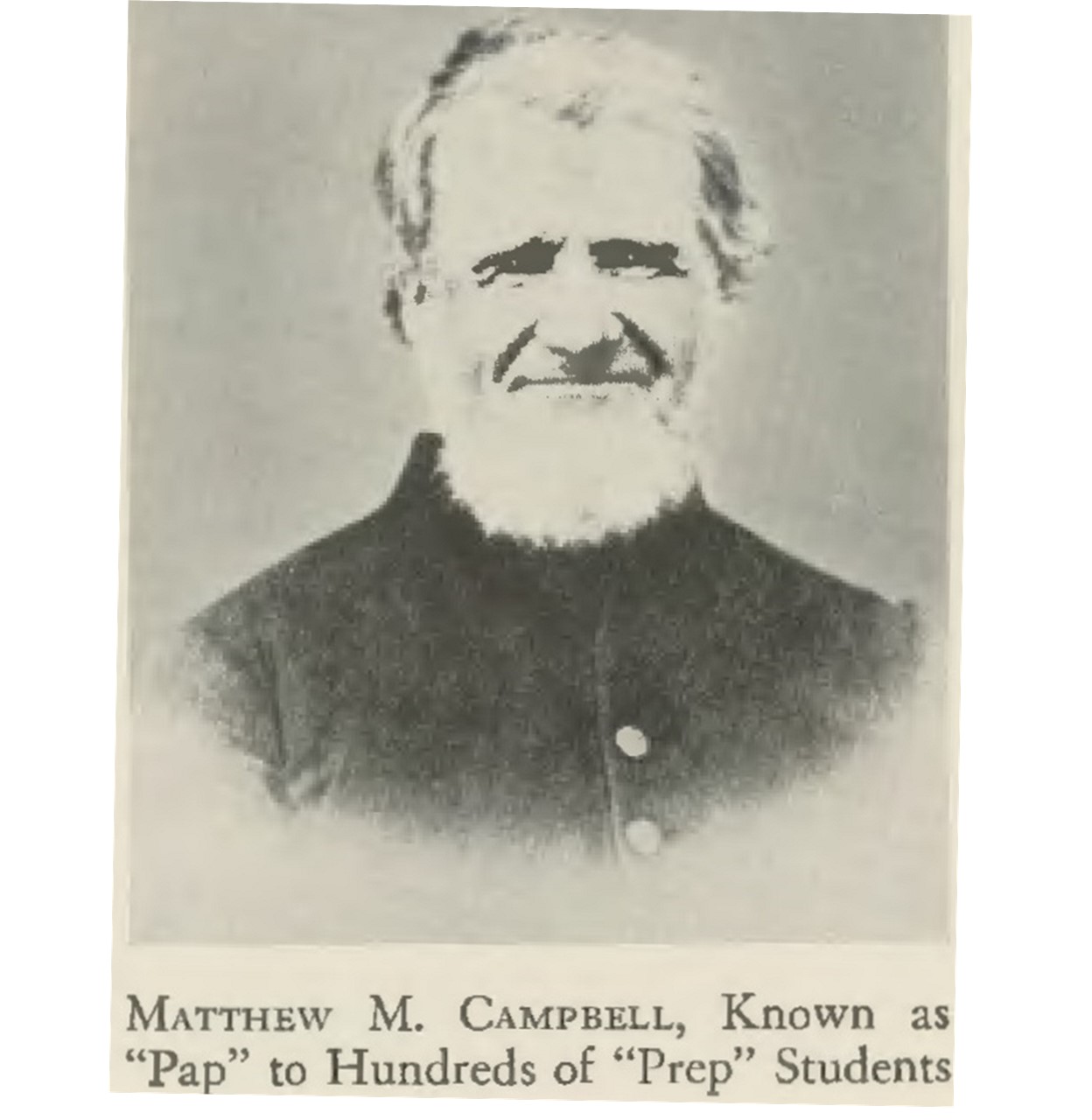Biographical Details
Date of Birth: November 12, 1810
Birth Location: Cumberland Gap, TN, USA
Graduation Year(s): 1836
Degree(s) Earned: Bachelors
Date of Death: December 29, 1897
Death Location: Topeka, KS, USA

Date of Birth: November 12, 1810
Birth Location: Cumberland Gap, TN, USA
Graduation Year(s): 1836
Degree(s) Earned: Bachelors
Date of Death: December 29, 1897
Death Location: Topeka, KS, USA
Matthew Monroe Campbell moved with his family from Cumberland Gap, Tennessee, to Louisville, Kentucky, in 1818. In 1829, he moved to Bloomington to attend Indiana State Seminary (now IU). He was attracted to IU by the reputation of its first president, Reverend Andrew Wylie. Campbell became a student under him with the intention of entering the ministry. He appeared in IU’s first college catalog. It took seven years for Campbell to complete his bachelor’s degree, but he eventually did so with honors. During his time at IU, he taught, assisted J. G. McPheeters in the preparatory department, and supervised the Boarding Club (IU’s first campus housing).
In 1837, Campbell went to Mississippi to take charge of a school, where he received an annual salary of $1,200. In 1840, he was offered the position of principal of the IU Preparatory Department. Although the salary was only $500, he, through his attachment to President Wylie, accepted the offer. Instead of finding a full faculty and normal workload, he found only two professors doing the work of six people. He frequently assisted teaching regular college classes and was also made adjunct professor of languages.
Campbell’s health began to fail in 1853, and as a result, he resigned from IU and retired to his farm in April 1854. On the grounds of his long and faithful service to IU, the Board granted him the privilege of sending his sons to IU tuition free. In 1859, he was an agent for the American Bible Society in Kansas, during which he exercised his talent as a lay preacher of the Gospel. The famine and drought that prevailed in Kansas in 1860 led him to return to Indiana.
In 1861, Campbell received a chaplain's commission for the 82nd Regiment of Indiana Volunteers from Governor Morton. He immediately joined his regiment and continued with it until he was called to fill the position of IU Chair of Languages occasioned by the resignation of Professor Ballantine in 1863.
Campbell’s last public service was as Superintendent of the Public Schools of Monroe County, Indiana, an office he held for four years. For the last fourteen years of his life, he was nearly blind. He died in 1897.
Shortly after graduation, Campbell married Martha McPheeters. They had at least one son and two daughters. Once his wife died, Campbell spent his time at the homes of his son and daughter(s), teaching and training his grandchildren and other children, with the hope that they might become good and useful members of society. He continued to write letters to newspapers.
His son, Charles, graduated from IU at age seventeen in 1859. Charles went on to become a U.S. Marine, minister of the Gospel, Justice of the Peace, and ultimately, pastor in Valmont and Denver, Colorado. During the war, his son-in-law (daughter Louisa’s husband), Andrew Jackson Arnold, was a prisoner of war for eight months at Andersonville.
During the 1880s, Campbell’s son-in-law (daughter Jennie’s husband), Francis Leavenworth, determined the western and southern boundaries of the Indian Territory (now the Oklahoma Panhandle). He also worked in astronomy, discovering nine stars and 270 nebulae (cosmic gas clouds).